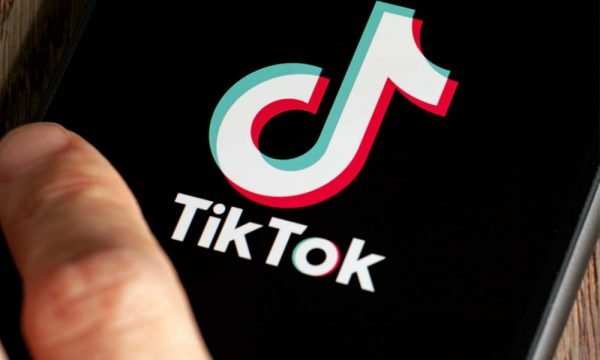Brands dominate the consumer products and services industry. Most people are very conscious of what brands they choose and why. However, many brands grow far beyond their competition. They aren’t just a way to recognize a great product or service. They acquire prestige along the way, appealing to broader or narrower audiences.
They gain fame, they gain revenues, but most importantly, they gain even a new consumer’s trust simply through their brand value. But what if the concepts of branding weren’t just restricted to high-street fashion or cutting-edge cybersecurity consulting firms? What if you could apply many of the same principles to yourself? Read on to find out more.
Table of Contents
Branding Yourself in 2021
We go out of our way and often inconvenience ourselves to stick with the brands we like. From Apple to Nike to Gucci, people spend thought and money on many acquisitions each year. Each brand has acquired uniqueness in how customers perceive it. And these brands market this uniqueness extensively, further expanding their brand value.
And we keep buying them. Style tribes are a great example. Sticking to a specific set of brands buys you a passport into the tribe. The utility of doing so? We can’t really say, beyond the satisfaction of belonging to people with shared fashion taste. But the monetary benefit that accrues to the brands themselves is significant.
So, you’re wearing branded clothes, shoes, watches, and eyewear. You’re broadcasting a specific persona everywhere you go. And in many cases, it gets the desired effect too. But what about the most important brand of all? What about you? What defines you and what do you stand for? These are questions that may require some careful thought and soul-searching. However, we can help you figure out what to do with the answers; turn yourself into a marketable brand. Here are a few helpful starting points:
Revise Your Perception of Yourself
The very first step is a dynamic shift in how you see yourself. For any number of reasons, it is easy to fall into the comfort (or trap) of being like everyone else. But is that really you? Are you a worker drone that’s going to toil away at the same task every day? Or are you something far more vibrant and with far more value to offer to a potential employer?
Why blend in when you can stand out? In a workplace, despite all the latest in performance monitoring, actions still matter most when they are visible. And for that to happen you need to look the part. You’re not just an employee, you’re a performer. You’re not a follower, but a leader. For your brand to succeed, you have to be the first to buy into it.
Identify The Strengths that Make Your Different
Once you begin to really alter your self-perception, you may notice several things in a new light. One of these is how you examine your strengths. Most workers are concentrated on acquiring adequate skills or experience for a role. But you’re not most workers. The strengths that you possess are unique to you.
The trick is to identify and harness them. The worst way to kill a brand is to undersell it. Identify the strengths you bring to the workplace that extends beyond your role. If you’re holistic enough, you may even find things like having a rowdy personality or a disregard for authority can be harnessed in constructive ways. What were once your flaws may turn out to be valuable strengths in any role or workplace.
Specify How Your “Brand” Offers More Value
Like any other brand, differentiation is the mantra for survival for yours as well. Among a sea of workers, what do you offer that immediately separates you from the rest? Be honest with yourself about skills and strengths you already possess.
Are you good-looking? Do you have a charismatic personality? Are you a people person? Do you have a unique approach to bringing value to your role? Each of these (or all of them) can be used as valid differentiators. But they’ll still need some refinement and work. Otherwise, instead of broadcasting value, you’ll only broadcast cockiness.
Divest Yourself from Conventional Hierarchies
Remember how you never liked rigid authority or hierarchies in school or elsewhere? A decade ago, mentioning this in a corporate job interview would be a surefire way to scare the recruiter away. Conventional corporations typically have very rigid hierarchies. The way conventional workplaces operate, there needs to be a clear chain of command to ensure teams operate in tandem. But this may not always be efficient.
Your role in the hierarchy isn’t always a privilege. It can also be a limiter. But if you choose to divest yourself of the prestige of a role, and instead develop an end-goal focus, you’re not an undesirable member of the workforce. You’re like a multi-role combat jet that anyone would want on their side. And be sure everyone knows that.
Understand The Best Way to Pitch Yourself
Sales pitches are usually a delicate matter. Heavy-handed pitches do more to turn off potential prospects than to convert them. On the other hand, many people don’t give much attention to low-key pitches either.
If you’ve ever worked in sales, you know there’s always that one person who keeps going off-script yet keeps raking in the highest revenue every quarter. The reason is usually that this person has found a better way to pitch the product or service than the script.
The same principle applies to you. Being competent in your role is just the first step. Don’t expect to get noticed on that alone. Businesses these days will help workers fill skill gaps, enrich skillsets, and develop related skills. But they do not stand for incompetent workers. Competence is only the bedrock on which you build your brand. That should always be a given.
Designations are how a lot of people determine what they want. Assistant Vice President of Acquisitions has a nicer ring to it than an Acquisitions Executive, right? Wrong. People confuse power with how high you stand in the hierarchy. The power they perceive is just the designation, not the person that holds it.
Of course, if a manager has to pull rank to get work done, they don’t have any influence at all. Just an empty title. By comparison, consider an employee several rungs down the ladder. If that worker (you) contributes more to the end goal, that’s the power you should be pitching, not your designation or role.





